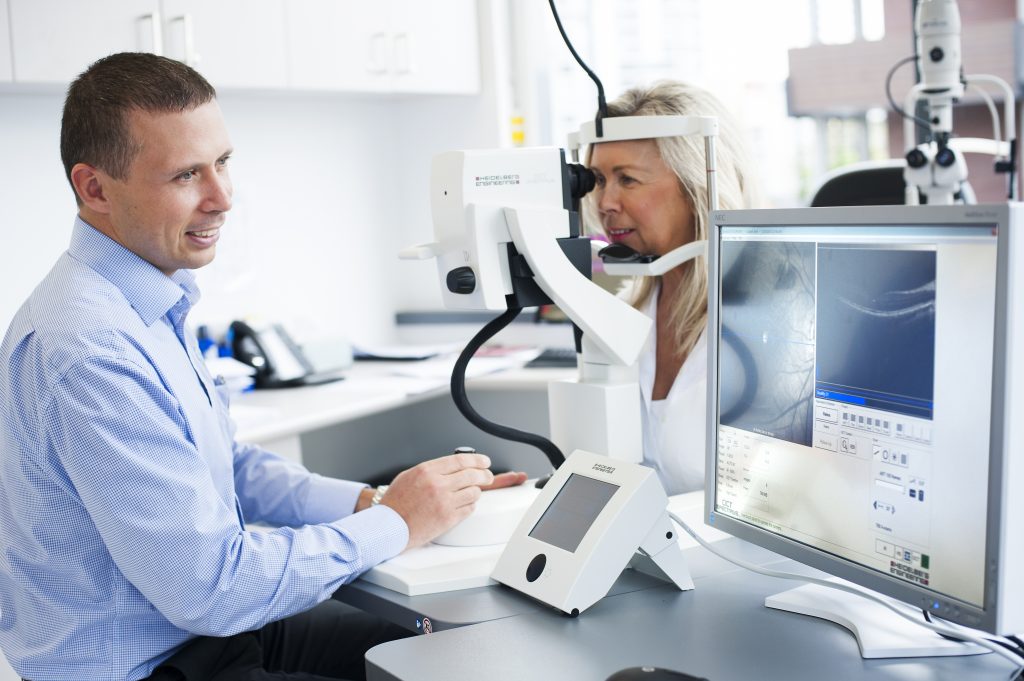Clinical trials confirm whether new medicines and treatments are safe and effective to introduce as new treatments for a particular disease or condition.
The Queensland Eye Institute is committed to supporting initiatives that improve health outcomes for patients with eye disease including improved access to new drugs that may be more effective than those currently available. Clinical trials are essential to the development of new medications. Each study is designed to answer questions and find better ways to screen, diagnose, prevent or treat a disease or condition. Some investigations look at how people respond to new treatments. This helps to determine if a new medication works, if it is safe, and if it is better than what is already available. They might also compare existing medications, test new ways to use or combine existing medications or observe how people respond to other factors that might affect their health such as dietary changes. By participating in a clinical trial, patients can access treatments not currently available to them. If a clinical trial is successful, the drug can go on to become a new treatment option for patients in the wider community.

Contact the QEI Clinical Trial Unit by Phone: 07 3239 5001 or Email: clinical.trials@qei.org.au